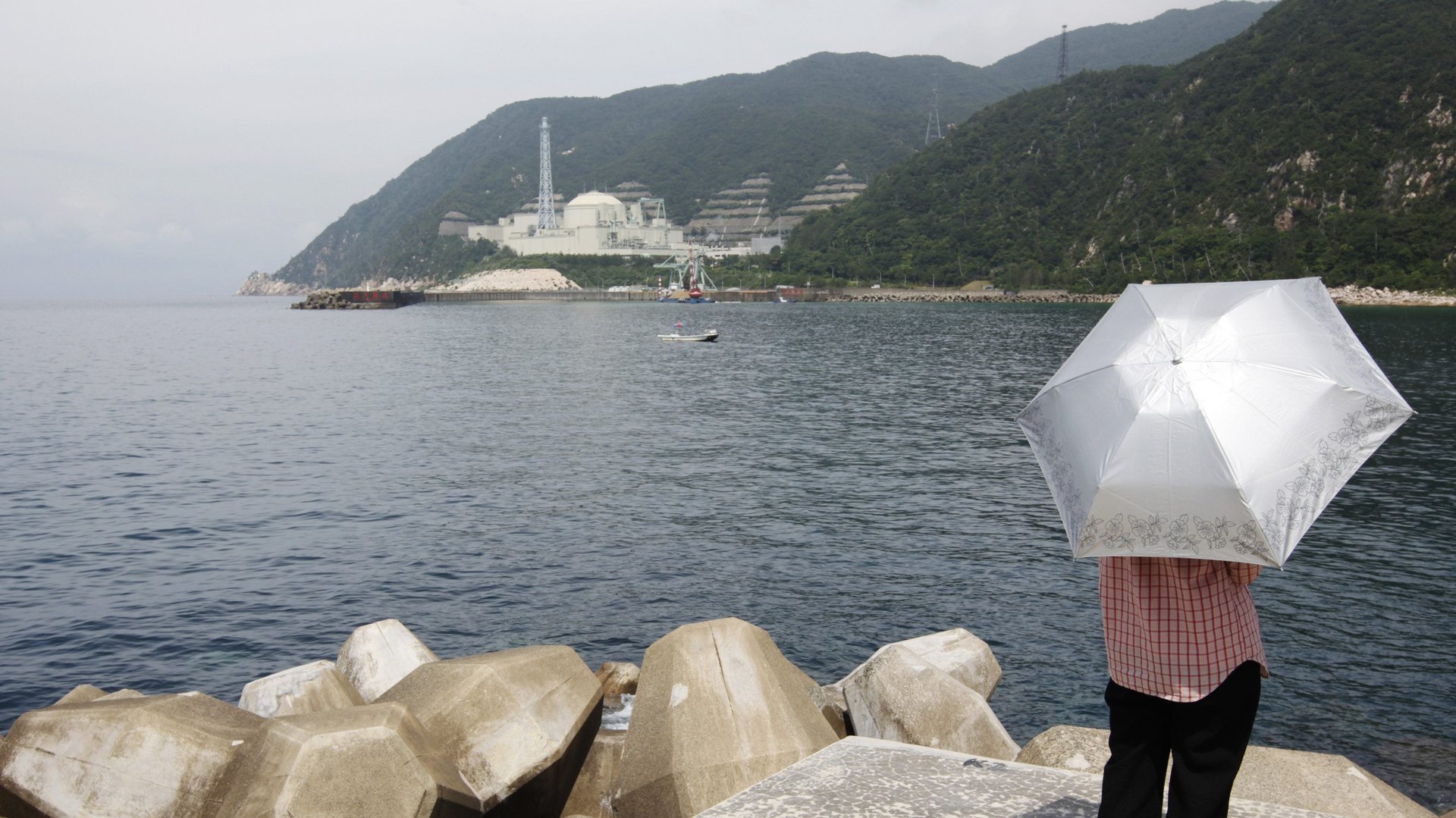Japan’s energy crisis is boosting backing for nuclear power a decade after Fukushima
A decade ago, Japan suffered the worst nuclear disaster since Chernobyl, when an earthquake and tsunami damaged the nuclear power plant in Fukushima, leading to a meltdown at three of its reactors and sparking fierce public opposition to nuclear power. This month’s 7.4 magnitude earthquake in the same region may be shaping an opposite reaction.


A decade ago, Japan suffered the worst nuclear disaster since Chernobyl, when an earthquake and tsunami damaged the nuclear power plant in Fukushima, leading to a meltdown at three of its reactors and sparking fierce public opposition to nuclear power. This month’s 7.4 magnitude earthquake in the same region may be shaping an opposite reaction.
A survey published Japan’s largest newspaper, Nikkei (link in Japanese), has found that 53% supported restarting decommissioned nuclear reactors, while 38% were against it. This marks the first time that a majority has supported nuclear power since the 2011 disaster.
A tale of two earthquakes and Japan’s tightening power supply
After the earthquake and subsequent nuclear disaster in 2011, Japan acted quickly to decommission its fleet of more than 50 nuclear reactors. In 2010, nuclear power provided 13% of its energy needs, and about 30% of its electricity. By 2012, nuclear had dropped to less than 1% of its energy mix, according to data from BP’s 2020 Statistical Review of World Energy, analyzed by Our World in Data. While a few reactors have been restarted since, nuclear power has been mainly replaced by coal and gas.
While decommissioning nuclear reactors mitigated the danger of another radiation crisis, the swift drop in energy generation resulted in a tightening supply that left Japan vulnerable to disruptions, like the earthquake on March 17 that knocked off a dozen thermal power plants.
A cold snap last week brought spring temperatures to near-freezing, and had people turning up their heaters. The combination set off a power shortage that threatened blackouts in 15 prefectures, including Tokyo. To avoid mandatory blackouts, Japan’s government asked citizens to reduce electricity use and turn their thermostats to a cool 20 degrees Celsius (68 degrees Fahrenheit).
Across Japan, neon signs flickered off, a TV station broadcasted the news with their studio lights dimmed, 7-Elevens were a little bit colder, and the landmark Tokyo Tower went partially dark. The energy-saving measures were temporary, but highlighted structural issues in Japan’s energy availability—while it was an earthquake this time, next time an extreme weather event or a disruption in fuel supply could once again bring Japan to the brink of blackouts.
For Japan, along with the rest of the world, the war in Ukraine and Russian sanctions have increased fuel and electricity prices. Even before the start of the invasion in February, Japan’s electricity prices had surged. According to broadcaster NHK, households this month will see their highest bills in five years.
A turning tide for nuclear?
Japan’s energy woes highlights an ongoing debate about nuclear’s role in the climate transition. Some governments, the United Nations, and the affiliated International Atomic Energy Agency, see nuclear power as a low-carbon technology that has the potential to provide heat and electricity without fossil fuels. Environmental organizations warn that the danger of nuclear meltdowns and toxic waste are greater than the climate benefits.
Japan has been ambitious in developing a decarbonization strategy that has included decommissioning its most polluting and inefficient power plants, and pledges to increase its renewable energy use. Until now, the country wary of another disaster has stayed away from nuclear power part of their energy transition, but recent events might be the first indications that the tide could turn.